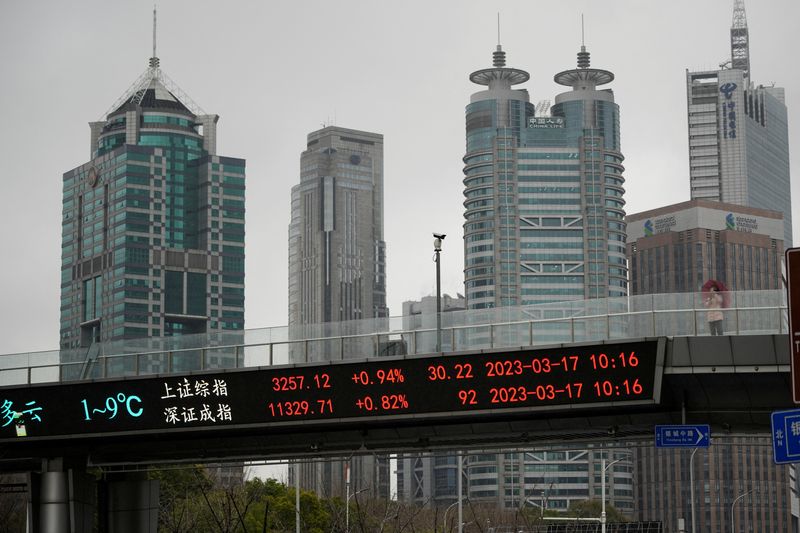By Summer Zhen
HONG KONG (Reuters) - Chinese funds are seeking new capital sources in the Middle East and other markets, managers say, in a shift that could reshape investment flows as diplomatic tensions and other risks drive many U.S. investors out of the country.
Seven China equity funds, including hedge funds and mutual funds, running more than $500 billion in combined assets, told Reuters they visited the Middle East this year to raise money, three of them for the first time.
Mideast investors are also keen to allocate more resources to China as they can benefit from lower valuations and the effects of government stimulus to support the recovery.
The retreat by U.S. investors and businesses out of China due to a host of risks has in turn prompted Chinese funds to look elsewhere to lessen their reliance on U.S. investment.
The search for new capital could affect Asia's hedge fund scene, where China firms account for more than half the market. Brokers and ancillary firms could change their focus to provide for Middle East-related services.
"In the past perhaps the holy grail of capital raising was the U.S.," said Effie Vasilopoulos, co-Leader of law firm Sidley Austin's Asia-Pacific investment funds group.
"But if the U.S. investor leaves, there is a real focus on replacing that with other capital that is de-risked to this U.S.-Sino tension. So that dynamic is leading many of our clients to the Middle East."
Managers of four of the seven funds visiting the Middle East spoke on condition of anonymity, as they have not yet drawn new investment.
But the warm reception has managers sensing a deeper shift.
"Sentiment (towards China) is most positive among Middle East investors relative to other investor groups," said Steven Luk, CEO of FountainCap Research & Investment, one of the seven funds who visited the Middle East this year.
"Some sovereign wealth funds are overweighting China," he said. "They talk more about how to play China instead of 'why China.'"
The long-only equity manager, which has been investing in China since 2015, nearly doubled its asset size to $2.1 billion since the end of last year, which it attributed to inflows predominantly from Europe but also from the Middle East.
As a next step, the firm wants to build relationships in Australia for capital raising.
Many advisers have followed to expand their presence in the Gulf too, said Erin Wu, head of investor relations at OP Investment Management, a Hong Kong-based hedge fund platform.
'POLITICO-INVESTMENT'
It was unclear whether military conflict in the Middle East would hasten moves among the region's investors to allocate beyond the U.S., but opinions on whether China's underperforming markets present value have been split for months.
Big U.S. investors such Texas Teachers' Pension and California State Teachers' Retirement System, for example, have cut exposure to China equities in the past year. However, sovereign funds in the Middle East have been large buyers.
MSCI's China index is down 11% this year, against a 8% gain for world stocks.
"It's a 'politico-investment' strategic decision," said Wong Kok Hoi, CIO at Singapore-based APS Asset Management "On the one hand, China is cheap and on the other hand, they believe they need to diversify away from their U.S.-centric investments."
APS attracted fresh capital from Middle Eastern and African investors this year.

Wong said it might be too early to predict how fund flows will be affected in coming months from the Middle East conflict, but the long-term strategy of Mideast investors to increase their exposure to non-dollar assets should not change much.
"If anything, the pace may even pick up in this new volatile environment as the oil-producing countries, benefitting from higher oil prices, will have more revenue to invest."